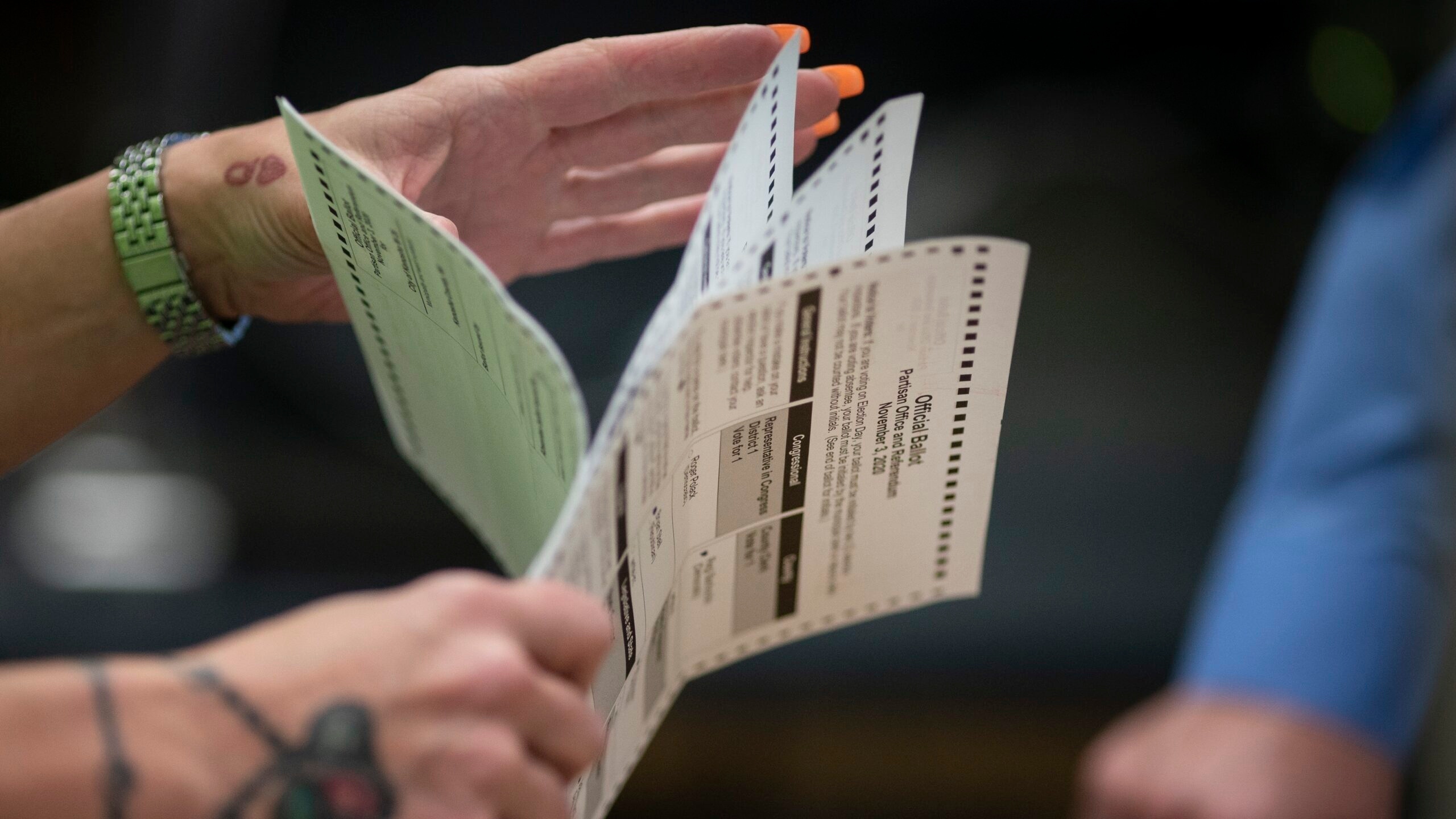Court of Appeals denies challenge to Minnesota absentee ballot rule

FILE - Poll workers sort out early and absentee ballots at the Kenosha Municipal building on Election Day in Kenosha, Wis., on Nov. 3, 2020. (AP Photo/Wong Maye-E, File)
The Minnesota Court of Appeals has denied a challenge to an absentee ballot rule that explains how those ballots must be accepted or rejected.
The Minnesota Voters Alliance argued that Minnesota Rule 8210.2450 conflicted with a state statute and doesn’t properly allow ballot board members to consider all evidence — mainly voter signatures — when deciding whether or not an absentee ballot should be accepted.
The organization specifically challenged two parts of the rule. The first, subpart No. 2, says the ballot board must reject a ballot on the basis of a signature only “if the name signed is clearly a different name than the name of the voter as printed on the signature envelope,” and adds that the use of or lack of full names, nicknames, abbreviations or initials aren’t a reason for an absentee ballot to be rejected. The second part, subpart No. 3, says board members “must compare the signatures” if voter identification numbers don’t match.
The Voters Alliance took issue with the rule’s statement regarding the use of or lack of full names, abbreviations and initials, as well as the part that says board members must compare signatures if identification numbers don’t match, as only election judges are allowed by state law to compare signatures.
However, the Court of Appeals noted that the rule, like state law, only calls for ballot board members to examine the signature on the absentee ballot envelope if the identification number doesn’t match the application.
Board members do have to verify the voter’s name and address match on the absentee application and the signature envelope, and the envelope must also be signed in some manner with the signed name matching the voter’s name.
The court determined that the rule simply allows “some flexibility in how a voter writes their name on different documents over a span of time” and doesn’t conflict with state law.
The court also rejected the notion that signatures not having to match would allow anyone to sign for a voter for any reason, noting that state law only allows another person to sign for a voter under one circumstance: when a voter “is unable to write,” another person can sign the signature envelope on the voter’s behalf in the voter’s presence.
As for the part of the rule that says board members must compare signatures if identification numbers don’t match, the court noted that ballot boards, by law, have to include “a sufficient number of election judges,” meaning the rule and state law can both be followed.
“Today the Minnesota Court of Appeals upheld the rule that provides guidelines for verification of absentee ballots by ballot board members. With more Minnesotans making the decision to vote by absentee ballot, this decision should give Minnesotans an additional boost of confidence that laws in our state encourage and support fair, accurate and secure elections,” Minnesota Secretary of State Steve Simon told 5 EYEWITNESS NEWS.
Tuesday, the Voters Alliance said it will appeal the ruling to the Minnesota Supreme Court.
“Our system depends on relying on the judgment, wisdom, experience, and training of citizen election judges, balanced by party, in deciding whether the voter who applied for a ballot actually cast it. The Court’s decision has created much confusion for election judges, and so we will immediately appeal to the Minnesota Supreme Court,” Andy Cilek, executive director of the Minnesota Voters Alliance, said in a statement.
“The Court substituted the judgment of the Secretary of State in place of party-balanced citizen election judges,” James Dickey, senior trial counsel of the Upper Midwest Law Center, added. “The rule conflicts with the law, and the decision today allowed the rule to take the law’s place. We will ask the Supreme Court to fix this error and deliver clarity for Minnesota’s election judges.”